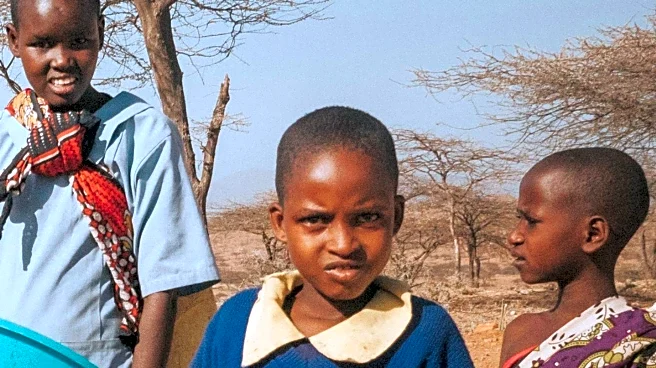What's Happening?
Cholera, a disease with ancient origins, is experiencing a resurgence in Africa, driven by conflict and poverty. Over the past three years, cases have more than doubled, with over 230,000 cases and nearly 5,000 deaths reported this year across 23 countries. The Africa Centres for Disease Control and Prevention (Africa CDC) and the World Health Organization (WHO) have announced an emergency plan to address the severe diarrheal infection. This plan includes the establishment of over 350 cholera treatment centers and hundreds of outpatient treatment locations, with an estimated budget of $231 million. The initiative aims to mobilize resources and coordinate efforts at the presidential level, focusing on improving access to clean water and sanitation, which are critical in preventing the spread of cholera.
Why It's Important?
The resurgence of cholera in Africa poses significant public health challenges, particularly in regions affected by conflict and poverty. The disease can kill within hours if not treated promptly, highlighting the urgent need for effective case management and access to medical care. The emergency plan by Africa CDC and WHO is crucial in addressing these gaps and preventing further fatalities. The initiative's focus on clean water access and sanitation infrastructure is vital, as these are key factors in controlling cholera outbreaks. The plan also aims to eliminate cholera as a major public health issue by 2030, which would significantly reduce the disease's impact on affected communities and improve overall health outcomes.
What's Next?
The emergency plan will be implemented over the next six months, with efforts to establish treatment centers and distribute oral cholera vaccines. The task force will work to mobilize resources and coordinate actions across multiple ministries and countries. The long-term goal is to eliminate cholera as a major public health issue by 2030. Stakeholders, including African leaders and international health organizations, are expected to continue collaborating to ensure the plan's success. Monitoring and evaluation of the plan's implementation will be crucial in assessing its effectiveness and making necessary adjustments.
Beyond the Headlines
The resurgence of cholera in Africa highlights broader issues related to conflict, poverty, and climate change. These factors contribute to the breakdown of water and sanitation infrastructure, increasing the risk of cholera outbreaks. Addressing these underlying issues is essential for sustainable public health improvements. The initiative also underscores the importance of international cooperation and resource mobilization in tackling global health challenges. The focus on clean water access and sanitation infrastructure may lead to long-term improvements in public health and resilience against future outbreaks.










